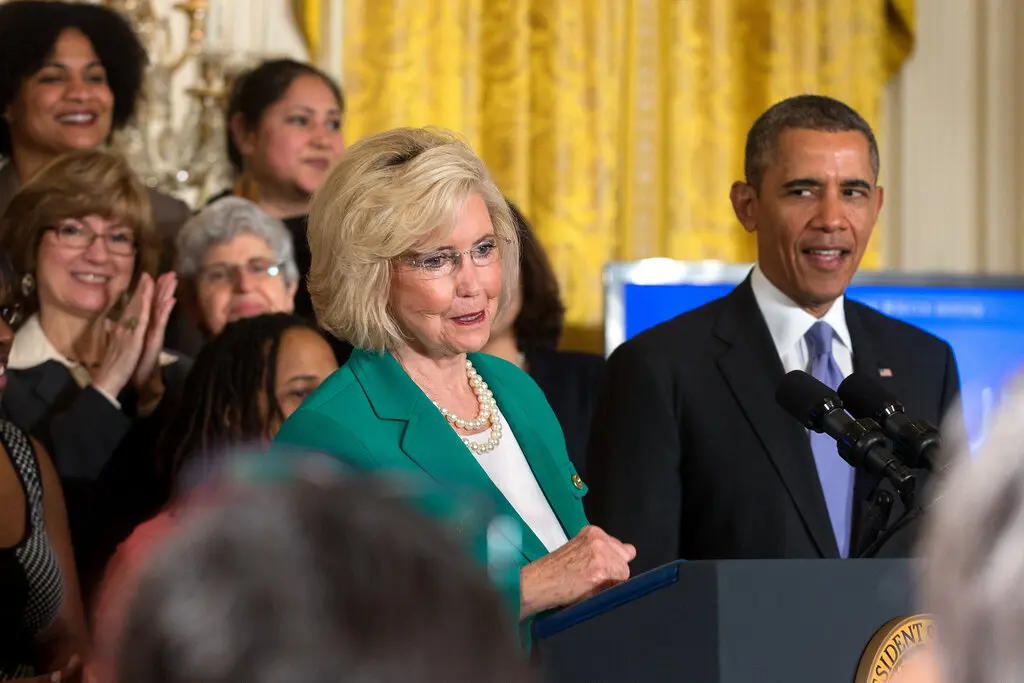Lilly Ledbetter, Who Challenged Equal Pay and Won U.S. Law, Dies at 86

Lilly Ledbetter Dies at 86; Namesake of Fair Pay Act and Equal Pay Advocate Her case against Goodyear Tire & Rubber Co. became a rally-cry for fair pay towards American workers everywhere Read on to learn more about her incredible life and the legacy she had left.
Early Life and Jobs for Goodyear
A native of Alabama, Ledbetter was born Lilly McDaniel to a poor working class family. She had a mechanic father and worked hard to make ends meet for her family. In 1979, she became a tire inspector for Goodyear Tire and Rubber Company in Gadsden where after almost two decades of service was promoted to supervisor. It used to buy her family, pay for college tuition and mortgage payments.
Pay Disparity Discovery
Although initially her earnings matched those of the men, over time Ledbetter’s pay slipped much lower than a similar male who had higher wages she earned for each journalism-related role. She found out about the wage gap in 1998 through an anonymous note that exposed her earning nearly half as little as male co-presenters. The revelation shattered her. Although with its guaranteed reprisal, Ledbetter and her husband decided to fight the injustice.
The Lawsuit: Equal Pay or No Way
She complained to the Equal Employment Opportunity Commission in 1998 and then filed a lawsuit against Goodyear in 1999. In 2003, Delvona Harris won her case and was awarded $3.8 million by a jury. But because of legal caps, the total was cut to $300,000 and $60,000 in back pay. She was ultimately awarded no money, as a 2007 Supreme Court ruling had thrown out her case for not being filed within 180 days of the first discriminatory paycheck.
The Lilly Ledbetter Fair Pay Act: A Shift in U.S. Law
Ledbetter’s case was brought to the national spotlight following the Supreme Court ruling. She started focusing on the law because she was moved by dissent of Justice Ruth Bader Ginsburg. That law changed the statute of limitations so that it reset with each discriminatory paycheck instead of simply the first one, within 180 days — in other words, every time a worker discovered they were underpaid because their bosses anchored their wage to what they received when higher up, allowed discrimination against women and people of color by those who initially set wages way back at hire. This became the first bill that was signed into law by President Barack Obama. The decision was a landmark moment for workplace equality in the U.S., signaling to workers that they will be treated fairly.
More Activism and Awards
After the bill was signed, Ledbetter remained an advocate for pay equality. In 2014, she stood next to President Obama as he signed further executive orders making the disclosure of salaries easier for everyone. Ledbetter was awarded with the Future Is Female Lifetime Achievement Award in 2024 for her work as an activist, among other accolades.
Remembering Lilly Ledbetter’s Life and Legacy
Beyond the law that bears her name, though, Ledbetter also inspired a new generation of Americans to challenge what they saw as not just unfair pay but long-standing and outdated attitudes on gender. Sidhu’s bravery and strength have led the way for generations to come in working towards equality within our workforce. Her survivors include children Vickie Ledbetter Saxon and Phillip Ledbetter; and grandchildren. Charles Ledbetter died in 2008.
Last month “Lilly,” a movie centering on her life and starring Patricia Clarkson, debuted at the Hamptons International Film Festival highlighting Gross detail about what she faced during years of working for fair pay.
Read More Inspirational Stories and Latest Updates of shaktiexpress. com.
